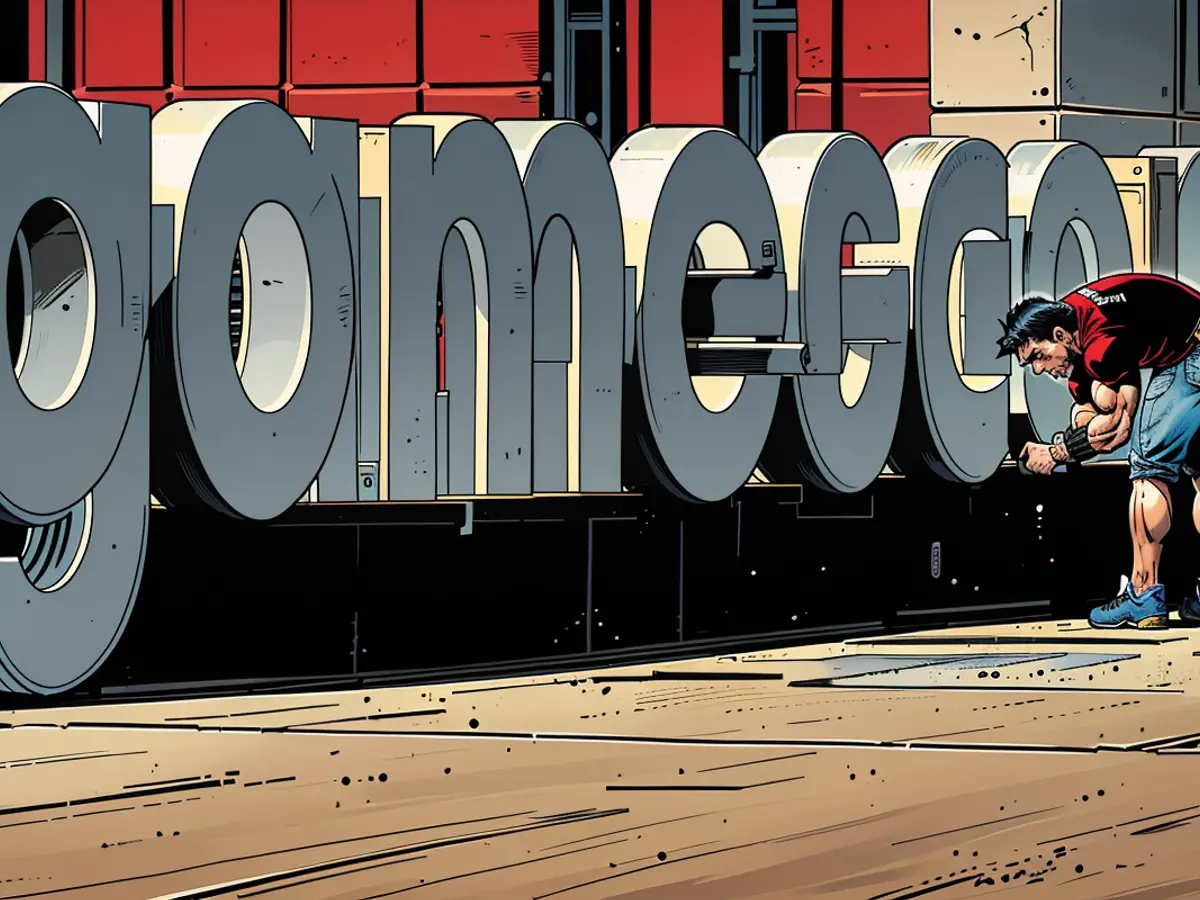Smaller video gamedevelopment studios are struggling to stay afloat
During the global COVID-19 pandemic, the gaming sector thrived. However, the pace of growth in this sector has since slowed down significantly. Particularly, smaller studios are facing numerous challenges.
Originally, German studio Suspicious Games was all set to launch their creation, "Project Owl" - an adventurous computer game filled with monsters and heroes, at Gamescom. The team had invested three years of hard work into the project, and they received approximately 100,000 euros in funding from the Bavarian Film and Television Fund.
Unfortunately, despite the significant investment, the game didn't see a market launch. "We had spent all our money, with no release date in sight," recalls Dennis Quaisser, the 33-year-old head of the studio. "Orders from other studios for additional projects ceased to keep us afloat." In the spring, Quaisser had to shut down the company. Sadly, Suspicious Games won't be attending this year's Gamescom, held in Cologne.
The closure of Suspicious Games is not an isolated case. Munich-based studio Mimimi released their game "Shadow Gambit: The Cursed Crew" and then shut down operations, citing it as their "final game." Studios like Flying Sheep from Cologne, Piranha Bytes from Essen, and Threaks from Hamburg also experienced financial hardships! Threaks, which was founded in 2009 and received various awards over the years for games like "Retro Invasion," announced that the "party was over." Demand for digital gaming has weakened due to higher interest rates and increased personnel costs, which has deterred investors.
Decreased Growth
Gaming industry statistics from the Game association show a decline in growth. In 2021, 749 gaming companies were established in Germany, representing an increase of 20%. By 2023, the number increased by 15% (reaching 908 companies). However, the growth increased only by 4% in mid-2024, to 948 companies - a marginal increase compared to the previous year. There were 12,408 employees in development studios and publishers (publishers) in Germany, representing an increase of 3.5% in the last year. By 2023, this figure had risen by 7%.
Now, smaller studios are facing financial challenges. Although larger companies are also impacted, the challenges are less severe compared to the indie studios. Basically, the gaming industry continues to grow - technological advancements, increased demand for gaming on consoles, PCs, and smartphones have contributed to this growth. The COVID-19 pandemic served as a sort of economic boost for the industry, with people spending more time playing digital games at home. In 2020, games and hardware sales increased by 32%, and in 2021, they increased by 17%. Later, growth slowed down, and now it's negative - in the first half of 2024, turnover decreased by 8%.
Germany only captures around 5% of the billion-dollar gaming market's revenue, with large corporate entities like Ubisoft and other international conglomerates with strong German locations taking the lion's share. Only a handful of larger German studios can boast of German ownership, such as Crytek from Frankfurt with its shooter game "Hunt: Showdown 1896."
Smaller Studios Struggle
Deck 13 from Frankfurt, with 90 employees, is one of the larger companies. The company has managed to grow stably, according to managing director Lars Janssen. "Our French parent company PullUp Entertainment ensures financial security for us to develop multi-million-dollar projects," he says. The company plans to maintain its staff level but is growing "very moderately." The manager is being cautious regarding the general market situation now.
While Deck 13, thanks to its French parent company, is doing relatively well, smaller independent studios are facing financial constraints. Former Suspicious Games CEO Quaisser acknowledges that the market was bound to consolidate after the COVID-19 boom. "We had hoped to weather the storm if things struggled;" he says regretfully, "unfortunately, our hopes didn't materialize." Quaisser now works for Pixel Maniacs.
The German Games Industry Association (Game) expresses concern over the current situation. The association criticizes the unfavorable framework conditions in other countries, such as France and Canada. The Federal Ministry of Economics suspended the acceptance of funding applications in May 2023, and new applications can only be submitted from January 2025. This delay is seen as a significant disadvantage.
Federal Government Funding
Fifty million euros in federal funding is available for 2024. This funding is intended for projects submitted before May 2023, with disbursements scheduled over several years.
A spokesperson from the Federal Ministry of Economics is optimistic that the number of gaming companies and employees in Germany is still growing. For 2025, another 50 million euros in federal funding is planned. "Considering the current very tight budget situation, this is a significant success and an important signal for the gaming industry," he says. The Game association demands more funding, and Federal Minister of Economics Robert Habeck is expected to attend this year's Gamescom as a guest; he had already visited the event last year.
Last November, surprisingly, Germany's Bundestag Budget Committee chose to allocate a whopping 100 million euros to Claudia Roth, the Federal Commissioner for Culture, distributed over a span of three years. However, the initial 33.3 million euros designated for 2024 is yet to be confirmed. A spokesperson from the Federal Commissioner's office admitted that discussions are ongoing with the Federal Ministry of Economics, aiming to execute the funding plan. "The matters at hand are quite intricate."
Despite the increased demand for digital gaming and the thriving gaming sector during the pandemic, smaller studios have unfortunately faced financial challenges. The closure of Suspicious Games and others like Mimimi and Threaks are examples of this struggle. Decreased growth in the gaming industry has weakened demand and deterred investors, resulting in fewer orders and diminished revenue.








